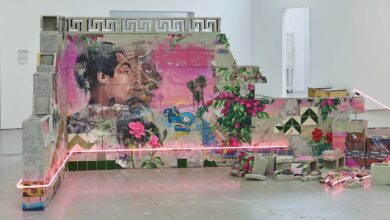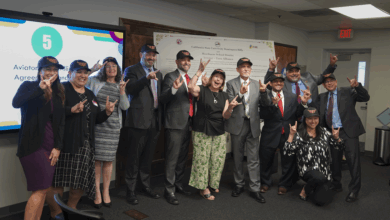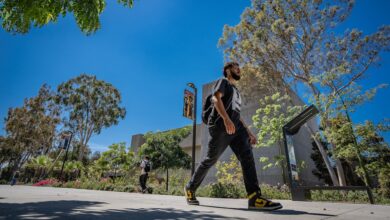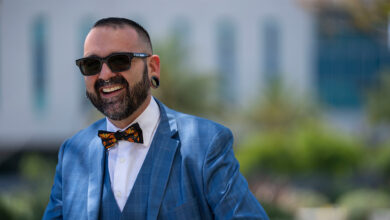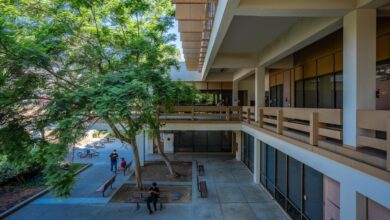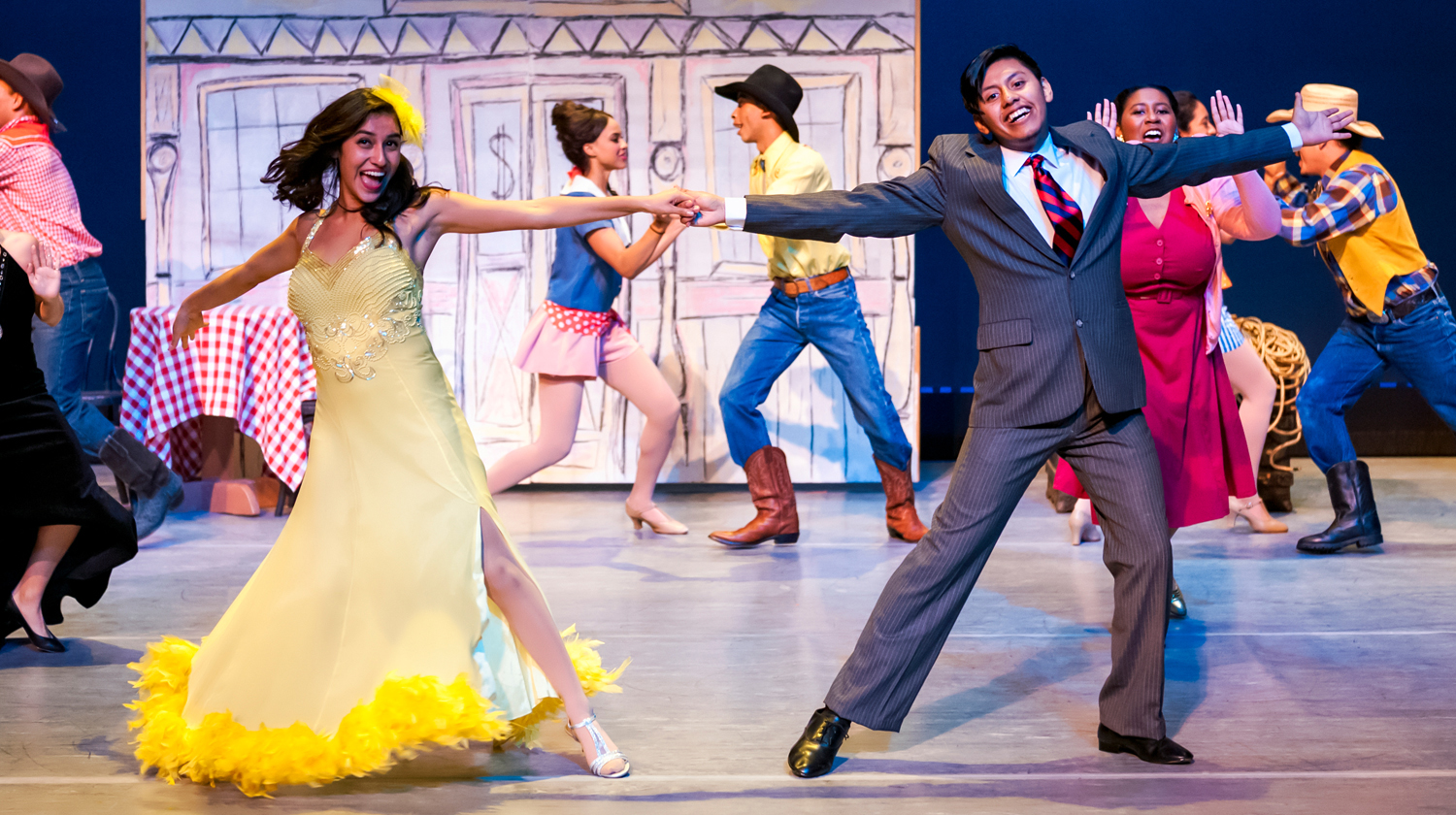
For many college students, summer is a time for relaxing and putting their studies behind them for a few months. But for three talented recipients of the 2022 Mellon Mays Undergraduate Fellowship, summertime meant conducting in-depth research that helped them prepare for graduate school.
“The Mellon Mays Fellowship allows arts and humanities students from underrepresented backgrounds or who are studying underrepresented aspects of research to apply for funding to help get them to go to graduate school,” says Andrea Johnson, an assistant professor of history and faculty coordinator for the program. “We prepare them for what life will be like in the academy as they continue on with their education.”
This year, the three Mellon Mays Fellows engaged in very different projects, spread out across the country. They all returned to campus this semester with a better idea of what graduate school is actually like–and with valuable research experience, as well.
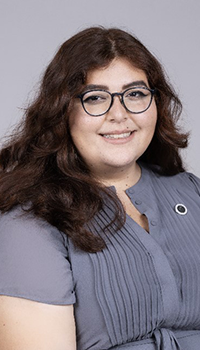
Michelle Avila
Majors: Anthropology and Art History
Michelle Avila was lucky enough to spend her summer researching her own project: an examination of the representation of “fat” female bodies in art, and how those representations can be linked to the gender of the artist. She spent her summer living on the campus of Johns Hopkins University in Maryland, researching the work of Henri Matisse at the Baltimore Museum of Art.
“They were very keen on us creating our own work and using the library and the resources at Johns Hopkins to further our research,” says Avila. “I’d already been dabbling with work regarding the female body shape and art, so I just went forward with that research. It was great training for grad school.”
Avila was one of approximately 30 students living and working at Johns Hopkins as part of the project. “We lived in the dorms and had roommates, so we got to build bonds with people from all over the country. I had a roommate from Texas who was doing pre-law studies, so it was interesting to get to know her and see how she was doing her research.”
She presented her research at a pair of conferences in Maryland, which she describes as “an amazing and bizarre experience.” The program coordinators at Johns Hopkins helped her pull her presentation together, assisting with creating speeches and talking points. “I really appreciate their efforts. They helped everyone in the group, which is a lot of work.”
Avila plans to graduate this spring, then attend graduate school. “I really want to continue this research and at some point write a book about it,” she says. In the future, she sees herself either teaching or working in museum education.
“I just love the idea of kind of developing a more accessible art history, where students can identify themselves with art and not just think of art history as this elitist subject, but rather a more inclusive and diversified area where everyone can identify with any artist or any artwork,” says Avila. “I really want to have these options available for people of diverse backgrounds and from all different walks of life.”
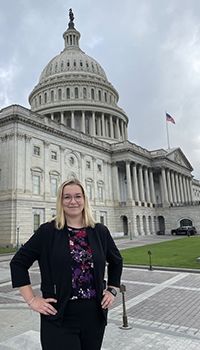
Caitlyn McClister
Major: History
Minors: Political Science and Anthropology
Caitlyn McClister spent her summer as part of a project for Enslaved.org, an online resource hub for information about enslaved peoples. The organization brought seven students from all over the country to Baltimore for six weeks, where they lived together and split their time between research activities and seminars on graduate school.
McClister and her fellow students worked on extracting data from a handwritten, archival list donated by a wealthy Maryland family titled Slaves for Hire. “It listed all the names of their slaves, who they were hired to, where they were hired to, and what price or what payment was going to be received,” says McClister. “It was our job to transcribe that document and create a dataset out of it.
“We also completed a data article, which basically serves as an explanation of the data set,” she adds. “That will be published in a Harvard database in the coming months. And then we presented our work at an end-of-the-summer conference at UC Riverside.”
For McClister, the best part of the project was writing a biography of two individuals on the list. “We had to piece it together. I noticed that a boy and a girl were both sold to the same household, and had been together for a long time. We noticed several documents in which they were listed together. So it got us thinking like, were they brother and sister?Cousins? Is there some kind of connection there? A really big part of this project was trying to piece together those kinds of connections.”
McClister plans to graduate this spring, then continue on to graduate school, with the goal of attaining a PhD in history. “I’m planning on specializing in 20th century U.S. foreign relations and women’s history, so I don’t know that I’ll be studying slavery, but I think data sets are a really unique, interesting way of studying history that I might incorporate later down the road.”
“I would say the whole experience was really eye opening. I learned a lot,” she says. “They took us to Washington D.C., so we got to explore a little bit of that. Honestly, it was really amazing to get to learn about something I didn’t have much knowledge in, and it was nice to be with a group of people that had varying levels of connections to it or knowledge of it. It was really awesome.”

Daniella Enriquez
Major: History
Minor: Communications
Daniella Enriquez didn’t travel this summer, but she stayed extra-busy by working on two projects right here in Southern California. She spent much of her time working on her own research project, an examination of “the unintended consequences of Prohibition,” as well as serving as an educational intern at the Peterson Automotive Museum in Los Angeles.
Enriquez’ research project focuses on the impact of the 18th Amendment, which prohibited the manufacture, sale, and transportation of alcohol. While the primary motivation of many Prohibition supporters was religious, it was also fueled by anti-immigration sentiment.
Much of her research this summer was on the law enforcement response to Prohibition. For example, before Prohibition, “the FBI was a really small organization that nobody really knew much about,” says Enriquez. “Once Prohibition passed, they hired thousands of new agents to combat the ongoing problem of enforcing these laws.”
Because so many immigrants were involved in the illicit alcohol business, agents “were just targeting anybody who didn’t look white,” says Enriquez. “If agents saw someone and they had a different nose, a different color to their skin, or their hair was different color, they would target that person. If you didn’t have any identification stating that you were a U.S. citizen, you were immediately extradited back to your home country. That was happening a lot.”
In addition to furthering her own work, Enriquez served as an educational intern at the Peterson Auto Museum. “A cool thing about the museum is that they go to a lot of low-income schools and bring the museum experience to them,” she says. “They bring one of their cars, and then also do educational activities with the students. What I focused on was creating three activities per grade level, for the grades kindergarten through five.”
Enriquez’ work impressed the museum enough that they hired her to continue her work on a part-time basis this fall. She is on track to graduate in spring 2023, with plans to attend graduate school upon completion of her undergraduate degree.



